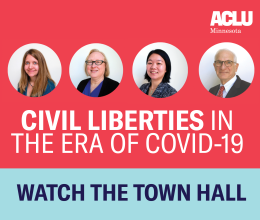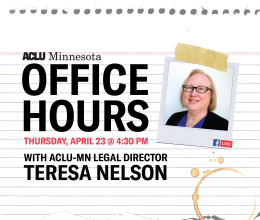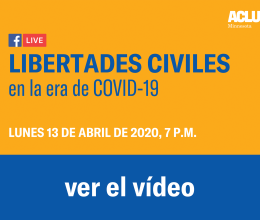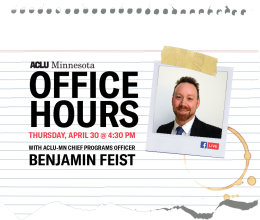
We know you have questions about the government's response to COVID-19. We have the expertise to answer those questions, and we're finding new ways to get you the information you need.
We've been collecting questions from supporters like you via email and social media, and we've been answering those questions in a series of virtual events, like our weekly Office Hours chats. This FAQ page gathers the most frequently asked questions and provides answers from our experts right here.
Have a question but don't see the answer? Send your question to us at communications@aclu-mn.org, or via Twitter or Facebook.


